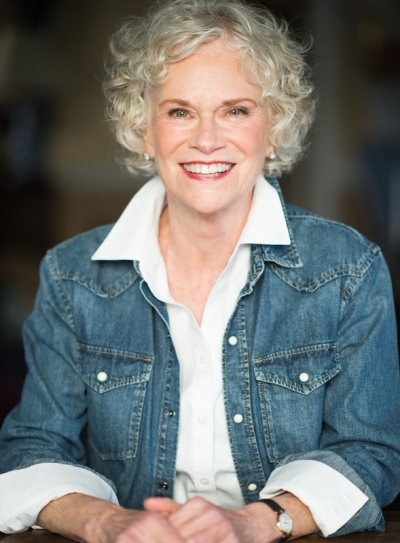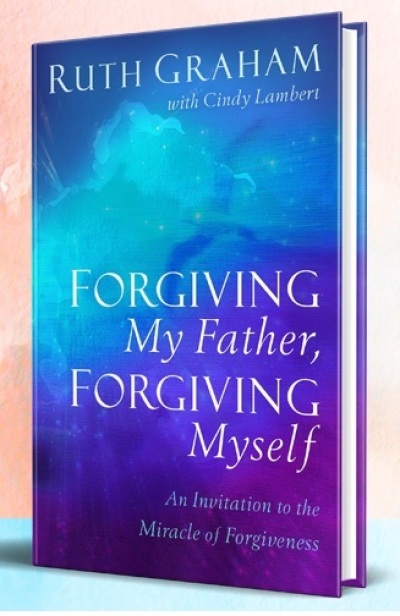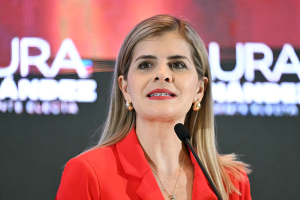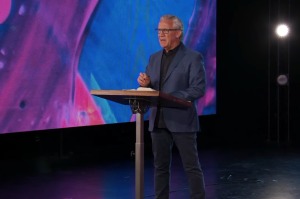Billy Graham's daughter shares how visit to Angola prison transformed meaning of forgiveness

Ruth Graham, daughter of world-renowned evangelist Billy Graham, will never forget her visit to “Angola,” the Louisiana State Penitentiary.
She, along with several counselors, ministers, and a psychologist from Ruth Graham & Friends had been invited to visit the prison and Graham eagerly accepted, she told The Christian Post, “believing that the Gospel of Jesus Christ could make a huge difference in the lives of the inmates.”
During the visit, the group was asked to meet with several individuals on death row.
“I was terrified. I thought, ‘visiting prisoners is one thing, but going to death row is another,’” she recalled. “But I couldn’t say no. You see the razor wire gleaming in the sun, and we faced a long corridor of cells, and I stepped in. We divided up so we could talk to as many men as we could.”
Graham first met a man named Michael, a charming 30-something with brown eyes. He stuck out his hand, introduced himself, and asked, “Can I sing you a song?”
Graham agreed, and Michael launched into a rendition of the classic hymn “It Is Well With My Soul.”
“And I knew it was well with his soul,” Graham said. “I knew that there, on death row, it was well with his soul.”
After singing, Michael handed the evangelist a small, woven cross made from the threads of his bedsheet: “I still have it,” the evangelist shared. “It means so much to me.”
Local news outlets heard of Graham’s visit to the prison, so it wasn’t long before she received an email from an individual asking specifically about Michael.
“The man asked me, ‘do you know if Michael is a believer?’” In her response, Graham informed him that she believed Michael was indeed a believer.
“But why are you interested?” she asked. “Because,” the man responded. “Michael murdered my grandson in a brutal way.”
The man, who revealed he was a missionary in Nepal, had been praying for Michael’s salvation in the years following his grandson’s death. He told Graham he took no pleasure in Michael’s pending execution and hoped he would find salvation before his death.
“I just want to know that he’s going to be in Heaven with me one day,” the man wrote.
“I realized,” Graham told CP, “just how shallow my understanding of forgiveness was. I know that when Michael steps into Heaven, eventually that grandfather will join him. Forgiveness transforms. Forgiveness is holy. It’s an invitation to the very character of God.”
Journey of Forgiveness
Graham’s own journey of forgiveness has been anything but easy.
“Forgiveness is something I've struggled with most of my life,” she said. “Forgiving myself, forgiving others who have wounded me, asking forgiveness from those I have wounded, forgiving God, forgiving my own father.”
Growing up as the daughter of one of the most renowned evangelists in the world, Graham often felt the weight of her father’s ministry. She told CP there was no question her father loved her and her four siblings — “he is my hero, and I adored him,” she said, but his ministry was all-consuming.
“I grew up with a father who traveled a great deal, and as a little girl, I wanted a daddy to tuck me in bed, take me for walks in the woods, but he wasn't home,” Graham recalled. “When I needed him most, he was the furthest away. I grew up with a sense of abandonment. All my life, I was looking for security, something to fill that spot.”
Seeking to fill the void within herself, Graham married her first husband at just 18 years old. When she discovered that her husband had been engaged in a long-running affair, she was devastated and soon after entered a “disastrous rebound marriage.” What followed were two more marriages, both of which also ended in divorce.
“I didn’t know why I kept making the same mistake; I didn’t know what was wrong with me,” Graham said. “I was talking to a good friend who said, ‘Ruth, you felt abandoned as a little girl.’”
“Tears sprang to my eyes because I didn’t want it to be true,” she continued. “I loved my dad, but it was true. The piece fit my puzzle. I got a good picture of why I so desperately needed security. Telling the truth about my past was my first step in forgiving myself and my father.”
Now, Graham said she can honestly say, “Jesus is my security.”
“My father and I were never able to talk about it because when I figured it out, he wasn't conversive anymore,” Graham shared. “He did write in his memoir that all the travel he did must've had repercussions in our lives, and it certainly did mine.”
“There are no excuses but there are reasons,” she added.
Forgiveness, Graham told CP, is a “life-long process.”
“When we choose to forgive, maybe six months later, the emotions come rolling back and you think that perhaps you didn’t actually forgive,” she explained. “Yes, you did, but emotions don’t tell the truth. We have to stand on the Word of God. It’s a process and a transformational thing that we may not recognize until years later.”
“Forgiveness is about giving yourself a gift, it’s letting go, it’s a way to get healthy emotionally, yes, but it’s so much more,” she added. “It’s holy, it’s sacred. When Jesus said, ‘Father, forgive them,’ what was happening? He was giving His life for us. Forgiveness is holy ground.”
Moving Forward
When looking for a book on forgiveness, Graham wanted “something that would tell me what worked and what didn’t.”
“But I couldn’t find it, so I wrote it,” she said.
In Forgiving My Father, Forgiving Myself: An Invitation into the Miracle of Forgiveness, Graham shares personal stories and biblical examples to discover why we hesitate to forgive ourselves and others.
“I wrote it very vulnerably,” she shared. “I tell my own stories so that if others want to walk with me, they can do so.”

While Forgiving My Father, Forgiving Others is not a “how-to,” Graham said there are certain steps individuals can take to work toward true forgiveness. The first step, she said, is simply asking God for the willingness to forgive, and “then make a decision to forgive.”
“You may want to write the date down because the devil will come down and say you didn’t forgive, but you have,” she said.
Then, “renew your mind with the Scriptures,” she said.
“Memorize the verse that is particular to that situation, and put that verse in place and recite it over and over,” Graham advised. “The first day it may be a thousand times, but eventually, you will walk in the freedom of that forgiveness.”
In her book, she addresses misconceptions about forgiveness and shares how bitterness and shame can impede both personal and spiritual growth.
“Shame is a tool of the devil; we don’t have to feel shame if we’re in Christ,” she said. “Shame is not productive or what God would have for us. God is not mad at us; He’s not looking down trying to catch us in wrongdoing. When we suffer the consequences of our sin, He weeps for us.
“God wants to renew our minds with the truth of the Scripture, that we are loved and adored and precious,” she continued. “The enemy is preventing us from knowing that truth. That’s how we have to renew our minds with the Scripture. And that takes time.”
Graham also presents a greater understanding of what forgiveness truly means and invites readers to embrace the transforming power of the Gospel and find true freedom in Christ.
“When you are confident that you are forgiven and you have forgiven, you can live there,” she said. “You don’t have to set up camp someplace else."
“Through forgiving, we are given the opportunity to participate in God’s character,” she added. “What a marvelous, sacred thing that is.”



























